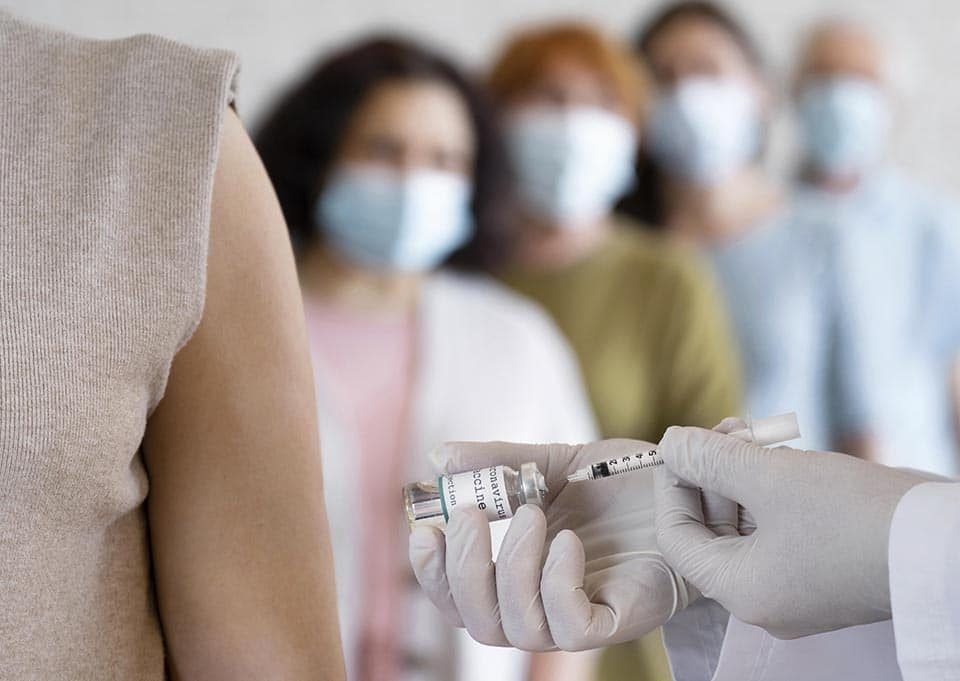Covid-19 vaccines for children: two-shot or one-shot vaccines
It has been close to two years since the Coronavirus appeared. Many countries have started the vaccination process and succeeded like the two-shot Pizer and Moderna vaccine and the one-shot Johnson and Johnson vaccine. However, these vaccines mainly target adults and the elderly, and many concerned parents worry about their children. As schools around the country are re-opening, parents face these questions:
- Are kids and adolescents eligible to receive vaccine shots?
- Should kids get vaccinated with two-shot or one-shot vaccines?
A covid-19 outbreak among children
In comparison to adults, fewer Covid-19 cases have been reported in the USA and globally, in children between the ages of 0 to 17. In the United States, children make 22% of the overall population. However, the recent data provided by CDC reports that the number of infections among children has been rapidly increasing since March 2020.
In the spring and the summer of 2020, transmission of diseases like SARS-CoV-2 (severe acute respiratory syndrome coronavirus 2) has been reduced among children owing to school shutdowns and community reduction measures.
This reduction explains the lower incidence rate among children in comparison to adults. However, children are pretty similar to adults when it comes to spreading the virus to others.
Symptom of Covid-19 in children
Children and adults appear to have the same incubation period of SARS-CoV-2. This period is usually an average of 6 days. Coronavirus symptoms in children are similar to other infections and noninfectious processes such as influenza and allergic rhinitis.
Here are some symptoms of COVID-19 in children listed below:
- Fever
- Diarrhea
- Headache
- Cough
- Abdominal pain
- Loss of taste or smell
- Sore throat
- Fatigue
- Shortness of breath
Fever and cough are the most common symptoms in children. Nearly half of pediatric infections may be asymptomatic. The lack of distinctiveness of signs and symptoms the identification of SARS-CoV-2 in children particularly challenging.
The Severity of Covid-19 in children
Children are in danger of developing severe illnesses from Coronavirus. the number of hospitalization is lower when you compare children with adults. Although children are less likely to develop severe illness, the hospitalization rate among children is rapidly growing.
Data from intensive care units in the United States show that approximately 1 in 3 children diagnosed with COVID-19 was transferred to the ICU. In addition, this data reports the similarity of ICU rates between adults and children.
Do children need COVID-19 shots?
Younger children are not at a high risk of contracting severe illnesses from Covid-19. However, due to the emergence of new variants like Delta, many youngsters are testing positive for Covid-19.
Between August 5 to August 12, 2021, there were reports of more than 120,000 new Covid-19 cases related to children. This number is troubling because it is close to 18% of the total cases.
Although children are less likely to become infected, they can still be infected and transmit the virus. As a result, the Delta variant has endangered children and adolescents across the country. More children are now at risk of becoming seriously ill or face long-term symptoms post-infection.
As schools are re-opening, many parents do not want to put their children’s health at risk. That is the reason that many pharmaceutical companies are trying to enroll their kids in clinical trials.
Are the COVID vaccines FDA approved for children?
The FDA (Food and Drug Administration) gave full approval to Pfizer and BioNTech for their two-shot Covid-19 vaccine.
In the case of vaccination for children, Pfizer announced its two-shot Covid-19 vaccine works for children ages 5 to 11. Pizer is also the only vaccine authorized for emergency use in children and teens between the ages of 12 and 17.
Pfizer tested a lower dose (a third of a normal vaccine shot) for kids and students. Their tests show that after their second dose, children developed coronavirus-fighting antibody levels like adults. The lower dosage also proved fewer temporary side effects for children ages between 5 t0 11.
Other vaccines like Moderna (a two-shot vaccine) and Johnson & Johnson (a one-shot vaccine) continue to be available under an emergency use authorization as well.
How many shots do children need?
Pizer tested and approved a two-shot vaccine for kids and children. However, the UK’s chief medical officers say children aged 12 to 15 should take only one-shot vaccines.
This recommendation for one-shot vaccines is related to the risk of an illness known as myocarditis. This illness causes inflammation of the heart muscle.
It can cause chest pain and heart palpitations. Fortunately, cases are generally not severe, and children can recover with standard treatment.
How to Find a COVID-19 Vaccine for Your Child
CDC recommends different methods to find the proper vaccine for your child. Some of the recommendations are listed below:
- Check your local pharmacy’s website to see if vaccines are available at your local pharmacy.
- Check with your child’s healthcare provider and make sure if they offer COVID-19 vaccination.
- Contact your state or local health department in order to find more information
Final thought
Vaccinating children and youngsters with two-shot or one-shot vaccines seems to be a perfect precaution against the existing Covid-19 threat. If our children are vaccinated, the risk of spreading Covid-19 will be decreased, we will have safer schools for our children, and we can get back to regular routines faster. Here at Southern Nevada Occupational Health Clinic and Southern Nevada Family Medicine, we provide Covid-19 vaccination and testing services. For more information, give us a call at (702) 874-4769 or go through the menu of the website.




